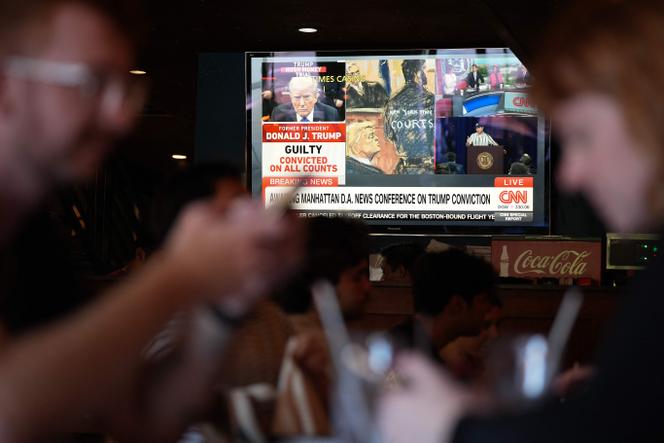


Donald Trump is guilty. That one word, one word only, has a global resonance. A word that expresses both the vitality of the rule of law that has been put to the test and the unprecedented challenge facing American democracy in an election year. Two syllables, pronounced 34 times for 34 counts, echoed in the Manhattan criminal court at the end of the day on Thursday, May 30. Trump has made US history. He is the first former president to be convicted in a criminal case for falsifying business records.
Many commentators had speculated and expressed doubts about this long-running case involving sex, tabloids, and payments. After 11 hours of deliberation spread over two days, the jury's verdict was unanimously and impressively swift. As the afternoon wore on, Judge Juan Merchan announced that he would be sending the 12 citizens home at 4:30 pm. The judge left and returned shortly afterward. He had just received a note. "We, the jury, have a verdict." It took another 30 minutes to carefully fill out the official decision form. "Let there be no outbursts of any kind," Judge Merchan demanded. Trump remained mute, impassive.
On Wednesday, after receiving final instructions from the judge – who was a remarkable guide in this well-followed trial – the seven men and five women, whose identities were protected, retired to deliberate. After a few hours, they asked for very specific details in writing. These included a key moment in 2015 when the alliance of interests between Trump and David Pecker, the former publisher of the National Inquirer tabloid, was forged. The newspaper was to spot any revelations embarrassing to the candidate, buy the exclusivity of the stories and kill them.
The "catch and kill" scheme, Assistant US Attorney Joshua Steinglass explained in his closing argument, was "one of the most valuable contributions anyone ever made to the Trump campaign," perhaps even "what got Trump elected." Michael Cohen, the candidate's personal lawyer, paid $130,000 to former adult movie star Stormy Daniels, just days before the 2016 presidential election. He was reimbursed by checks, in 2017, made through the Trump Organization.
Alvin Bragg, the Manhattan district attorney who took on the challenge of this case, was in the courtroom on Thursday, as he had been at key moments in the trial. This verdict was not just about Trump. It also represented an assessment of the prosecutor's work, and even of the credibility of the American justice system, denounced as instrumentalized and biased by supporters of the former president.
You have 69.19% of this article left to read. The rest is for subscribers only.
